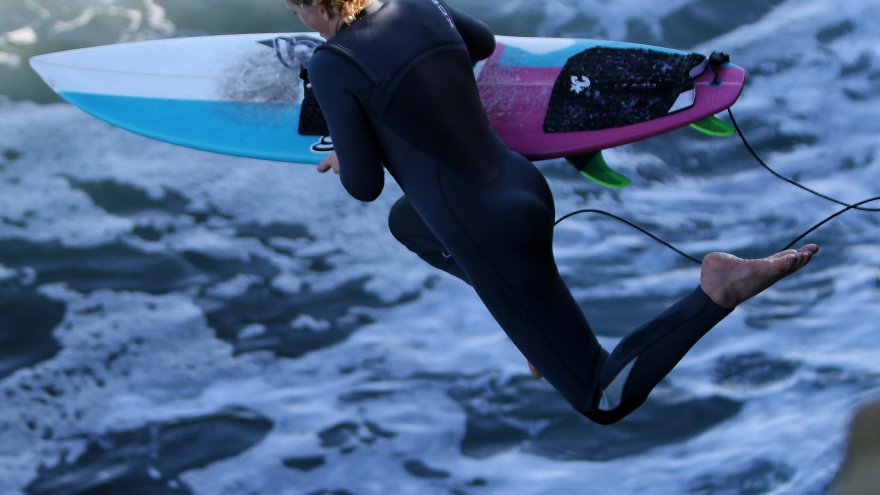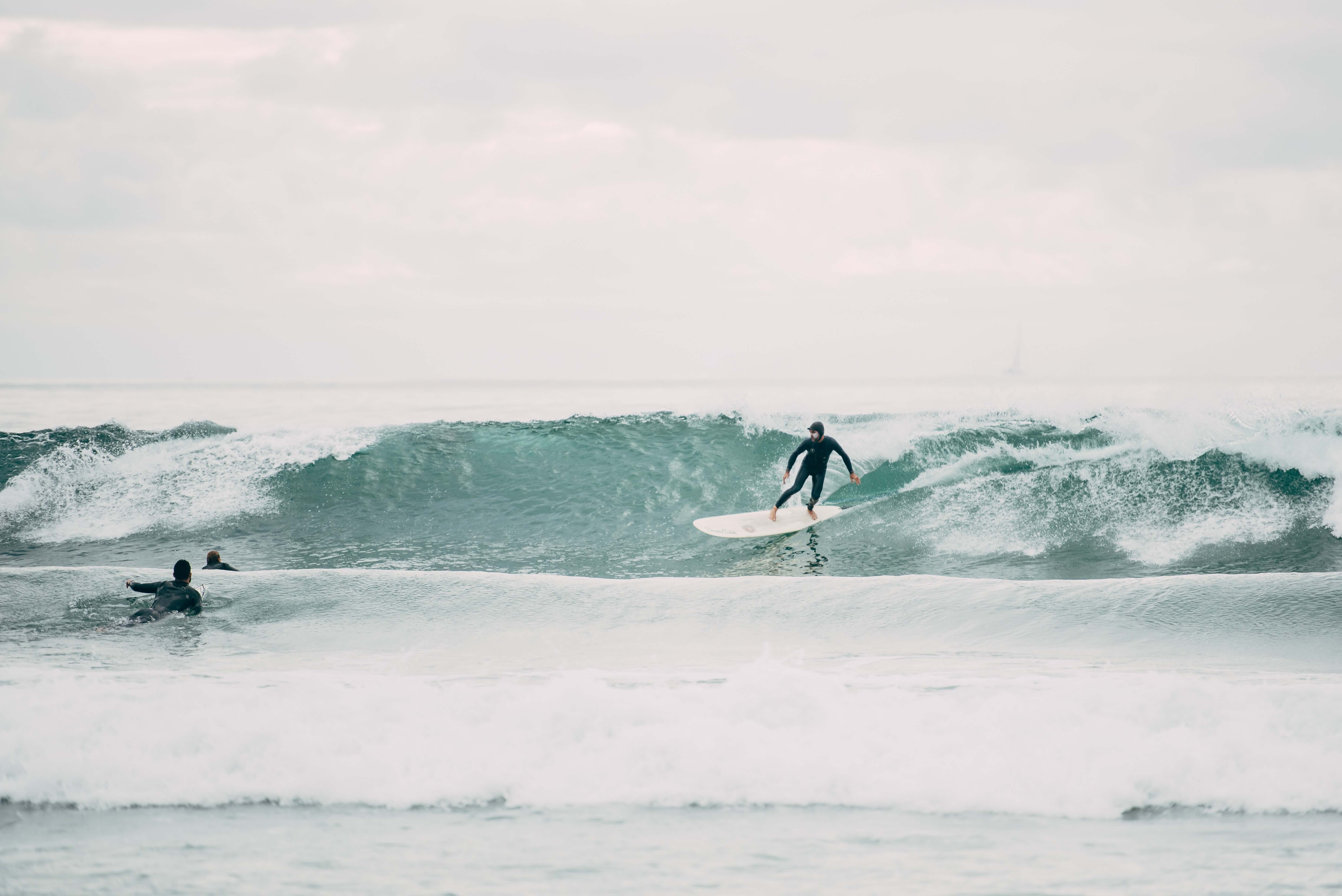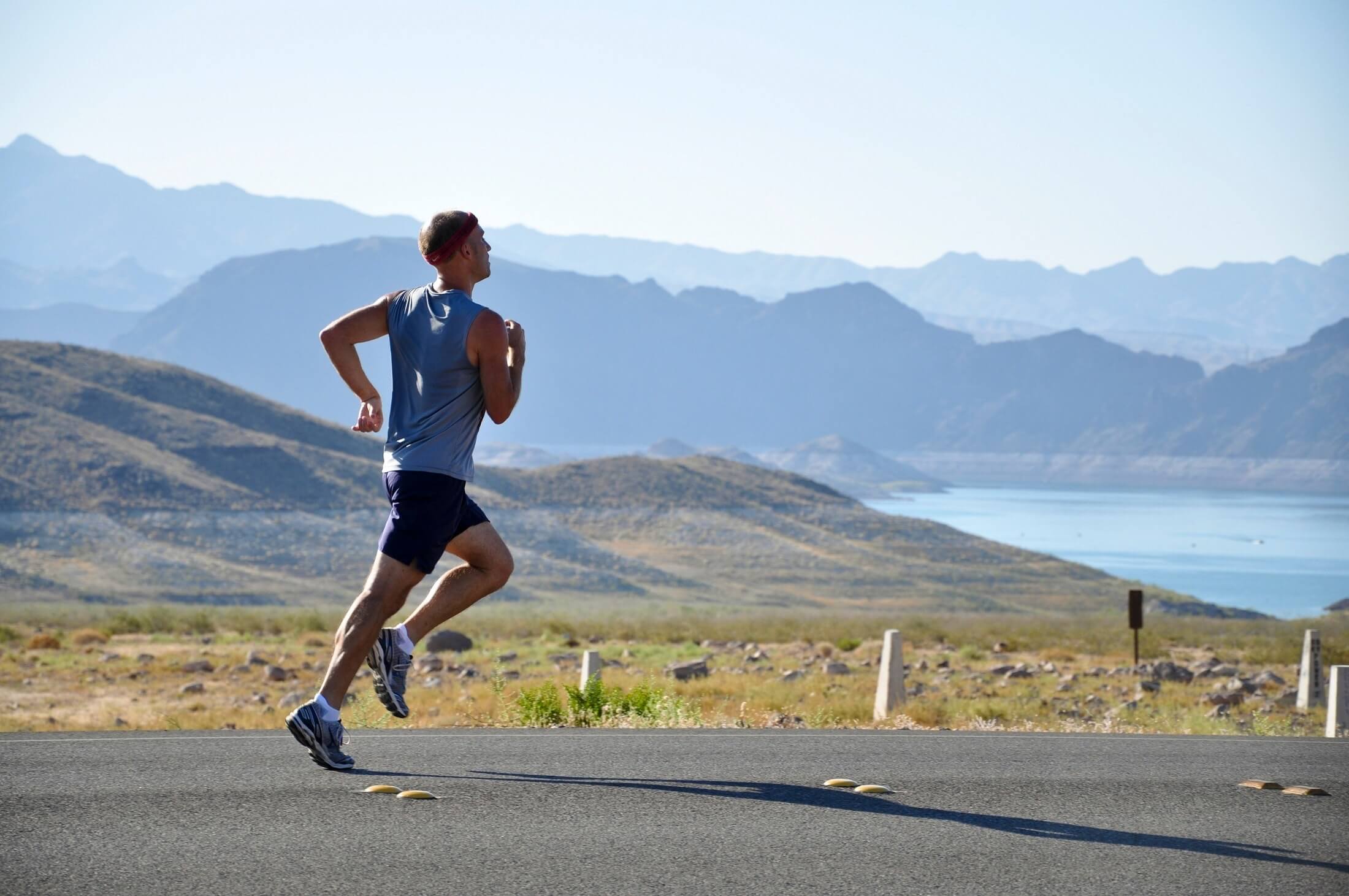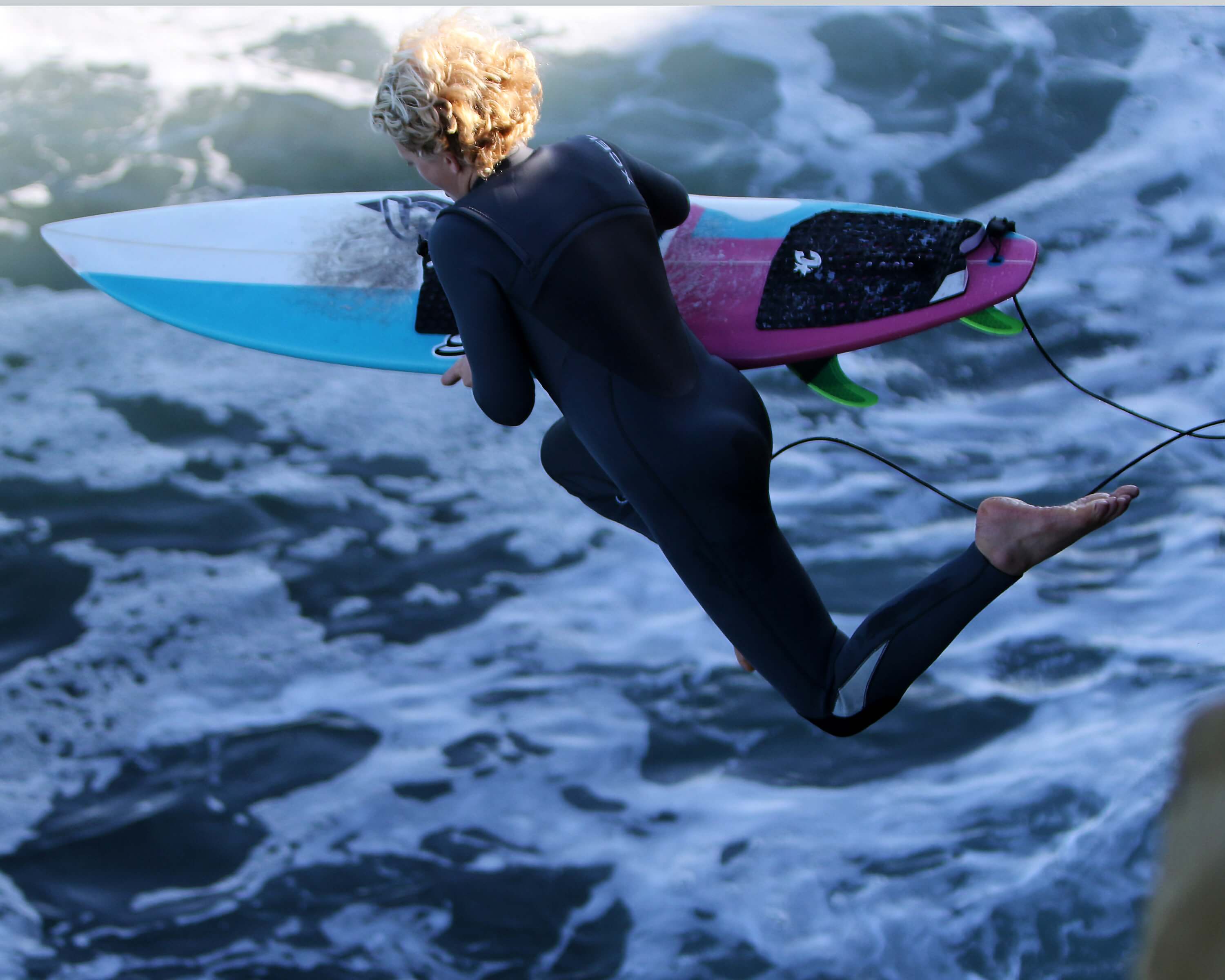Why Surfers Should Run & Runners Should Surf

One of the main reasons why successful athletes cross-train is because they understand that the human mind and body are naturally biased. We are cognitively biased (we unconsciously search for answers that match our beliefs instead of contradicting them because it’s easier), and we are also physically biased (our body and mind work together unconsciously to choose the path of least resistance by default, a.k.a. use the same muscle groups over and over).
Have you ever noticed that you have one big muscle group that always gets sore, no matter what? For me, it’s my quads. They always seem to “turn on” first, and get the most sore after a workout. This is because my body has a physical bias to my quads. It’s the worn path of least resistance, and if I didn’t make an effort to turn on and use other muscle groups, my quads would be unnaturally large while the rest of my leg would be lagging in strength. Not only can this result in something aesthetically displeasing (to me), more importantly, it can lead to injuries because my other muscle groups are weaker as a result. This imbalance in the strength of muscle groups is potentially dangerous.
A version of this concept is used in gym workouts and lifting, where different muscle groups are targeted on different days. This is a step in the right direction, but the truth is that your body works best as a fluid unit, not as individual parts. Therefore, cross-training with exercises that work your body out as a whole, and in a flexible way, have a lot of benefits over simple weight training. Both surfing and running are disciplines that to be successful need to have a certain graceful economy of movement. There needs to be an element of free-flowing fluidity.

Think of catching a wave. You need to powerfully paddle with your arms, pop up with the strength of your arms to the balance of your legs, and then use both lower and upper body balance and lower body strength… all at once.
Then think of running. Your entire body is constantly moving for long periods of time, all while holding your center of gravity and balance. For both of these full body workout sports, you need core strength and balance.

You may have already read on our blog about how trail running is excellent for any athlete to practice if they’d like to improve their proprioception (your body’s sense of balance and where it is in relation to things around it) and exercise new muscle groups. Surfing is an extension of this idea, as it is a fantastic way for a runner to use different muscle groups, greatly improve their balance, and of course get a solid session of heart-pounding cardio. Not only is surfing physically beneficial to your health, it’s also been proven to have psychologically positive effects as well. Just like running in nature, surfing restores your mind’s directed attention capacity – meaning your brain can relax with the effortless attention it needs in nature, as opposed to the constantly demanding stimuli found in everyday urban life. (You can read more about this concept called Attention Restoration Theory here.)
As a surfer, your goals may include being able to increase your paddling power, duck-diving power and timing, and be able to relax your body and hold your breath for long periods of time. If you add running training to your regime, with some sprinting thrown in, in a few weeks you should notice an improvement in the water. Your breath holding ability, paddling power, lower body strength and fluid balance will all increase.

As a runner, your goals may include increasing mileage, running faster, and improving your posture and gait efficiency. If you add surfing to your training regime, especially with some swimming thrown in, in a few weeks you should notice an improvement in your running. Again, your lower body strength and fluid balance will increase, your breathing will improve (paddling and duck-diving force you to time and hold your breath) and your posture can also improve. (When paddling, the correct posture is to hold up your head and neck, with your back lightly arched to achieve this because you are laying down. This posture will strengthen your core, but be careful not to hold your head too high, and to maintain a good posture).
Ultimately, the best training for any sport is the sport itself. But if you’re looking to excel, to prevent injury, and to generally improve your fitness regime, cross-training with surfing and running is a great idea. And if you don’t live near the ocean, consider swimming or yoga as your cross-training exercise. They can both help with your fluid strength and breathing patterns.
Latest Articles
 Is Running on a Treadmill Easier Than Running Outside?Runners have their own preferences, whether it is treadmill running, running outside on the road, or exploring trails. So...
Is Running on a Treadmill Easier Than Running Outside?Runners have their own preferences, whether it is treadmill running, running outside on the road, or exploring trails. So... Is It OK to Use Trail Running Shoes on the Road?While trail running shoes can be used on roads, especially in situations where a runner encounters mixed terrains or pref...
Is It OK to Use Trail Running Shoes on the Road?While trail running shoes can be used on roads, especially in situations where a runner encounters mixed terrains or pref... How to Fix Sore Quads After Running?Rest, ice, gentle stretching, and over-the-counter pain relievers can help soothe sore quads after running. Also, ensure ...
How to Fix Sore Quads After Running?Rest, ice, gentle stretching, and over-the-counter pain relievers can help soothe sore quads after running. Also, ensure ... 10 Fruits With The Most Electrolytes to Replace Sports DrinksThese fruits are high in electrolytes such as potassium, magnesium, and calcium, essential for hydration, muscle function...
10 Fruits With The Most Electrolytes to Replace Sports DrinksThese fruits are high in electrolytes such as potassium, magnesium, and calcium, essential for hydration, muscle function...

